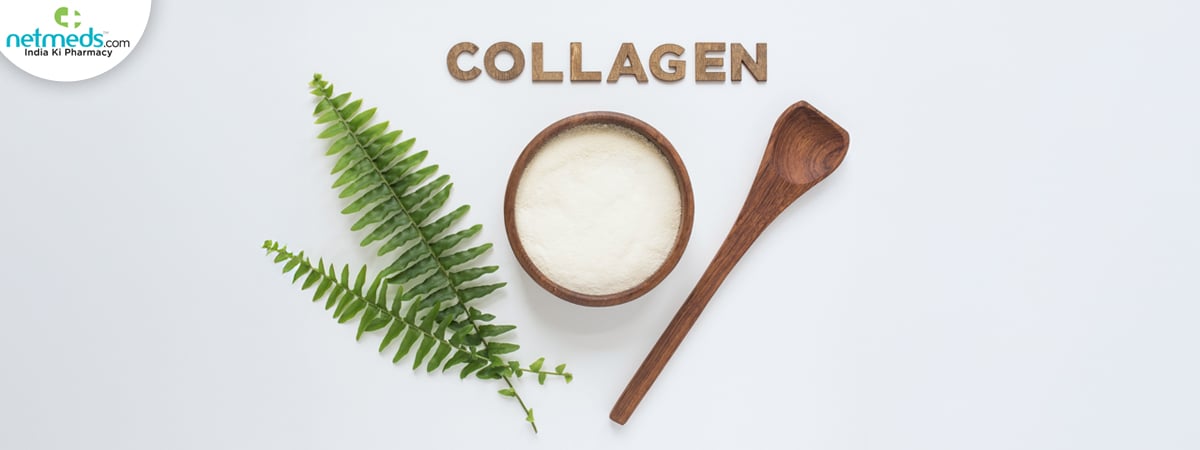Collagen! We have all been hearing about this magic word quite often these days. And for a good reason. The most abundant protein in our body, forming the structural foundation of the skin, hair, nails, and connective tissues, think of it as the glue that keeps our skin firm, smooth, and resilient. However, collagen production naturally declines with passing years or typically when we reach our thirties. The result is fine lines, wrinkles, and sagging skin. While ageing is inevitable, certain daily habits can accelerate collagen breakdown, making our skin appear older than it really is. Let us find out the top seven collagen-damaging habits and how to rebuild this skin-friendly compound naturally.
Also Read: Collagen: Discover Benefits, Uses, And Side Effects Of This Protein Supplement

Worst Factors That Damage Collagen
Our daily choices have a lasting impact on our skin’s collagen levels and overall youthfulness. But then, we end up damaging our collagen levels in ways that may be irreversible after a certain point. Check out the worst culprits that can deprive your body of this component.
Excess Sun Exposure
Prolonged sun exposure is one of the biggest collagen killers. UV rays penetrate deep into the skin, generating free radicals that damage collagen fibres and reduce elasticity. Over time, this leads to wrinkles, pigmentation, and premature ageing, also called photo ageing.
How to Fix It?
Always wear a broad-spectrum sunscreen (SPF 30 or higher), even indoors or on cloudy days. Apply antioxidant serums like Vitamin C or niacinamide to fight UV-induced oxidative stress.
Smoking
Smoking drastically reduces blood flow to the skin, depriving it of oxygen and vital nutrients. Nicotine and other toxins break down collagen and elastin. Also, repetitive facial movements like pursing lips can create deep wrinkles around the mouth.
How to Fix It?
Quitting smoking immediately improves circulation and oxygen supply to the skin. Eat vitamin C-rich foods like oranges, kiwis, and bell peppers to support collagen synthesis and use topical products containing peptides or retinol to stimulate new collagen formation.
To Optimise Your Overall Health And Well-Being, Shop From Our Wide Range Of Collagen Supplements
High Sugar Intake
Sugar molecules bind to collagen fibres in a process called glycation, making them stiff, weak, and prone to breakage. The result is dull, sagging, and wrinkled skin.
How to Fix It?
Reduce refined sugar and processed carbs and add low-glycaemic foods like whole grains, vegetables, and nuts to your diet, as well as antioxidant-rich foods, berries, green tea, and turmeric to combat glycation damage.
Poor Sleep Habits
Your skin regenerates while you sleep. Lack of quality rest disrupts this natural repair cycle, leading to reduced collagen production and increased signs of fatigue such as fine lines, puffiness, and dullness.
How to Fix It?
Aim for an uninterrupted sleep, which should be about seven to eight hours every night. Follow a consistent bedtime routine to regulate your circadian rhythm.
Chronic Stress
When you are stressed, your body releases cortisol, a hormone that breaks down collagen and slows down its renewal process. Chronic stress also reduces your skin’s ability to heal and stay firm.
How to Fix It?
Incorporate meditation, yoga, or deep breathing exercises in your everyday routine. Maintain a balanced diet with omega-3 fatty acids and adaptogens to support hormonal balance.
Over-Exfoliating Or Using Harsh Skincare
While exfoliation helps remove dead skin cells, overdoing it can weaken your skin’s protective barrier and cause inflammation. These two factors can accelerate collagen breakdown immensely.
How to Fix It?
Limit exfoliation to a maximum of three times per week using gentle scrubs or mild chemical exfoliants. Stay hydrated to enhance blood flow and skin health. Avoid alcohol-based toners and harsh peels.
Poor Nutrition
Collagen is made of amino acids such as glycine, proline, and hydroxyproline. Without sufficient protein and micronutrients, your body can’t produce collagen effectively.
How to Fix It?
Eat a protein-rich diet including fish, eggs, legumes, and lean meats. Add collagen-boosting foods like bone broth, citrus fruits, leafy greens, and nuts. Consider collagen peptide supplements or marine collagen for added support.

Also Read: What Are Collagen Peptides? Myths And Fact, Health Benefits And How To Use Them
How To Boost Collagen Production
If you have been practicing above mentioned habits, do not worry, it is never too late to rebuild your skin’s strength. By avoiding collagen-damaging habits and adopting a healthy lifestyle, you can preserve your skin’s elasticity, slow down visible aging, and maintain a radiant, youthful glow for years to come. Try the following to get your collagen dose right:
· Use retinoids, moisturizers with ceramides, hyaluronic acid, and peptides to strengthen and hydrate the skin barrier
· Vitamin C plays a vital role in collagen formation by supporting amino acid conversion into collagen fibres. Eat citrus fruits or apply Vitamin C serums daily to promote collagen synthesis
· Hydration supports collagen structure and elasticity. When skin is well-hydrated, collagen fibres remain flexible and strong. Stay hydrated and eat a nutrient-dense diet
· Avoid smoking, excessive alcohol, and stress. This ensures your collagen remains strong and your skin stays youthful and resilient
· Sun exposure is one of the biggest collagen destroyers. Daily sunscreen use prevents UV-induced collagen breakdown. Apply a broad-spectrum SPF 30+ every morning and even indoors. Wearing hats, sunglasses, and using antioxidant serums also enhances protection.
(This content is reviewed by Kalyani Krishna, Chief Content Editor)
Author Profile: Preeti Sharma
Preeti Sharma has a Master's in Electronic Media and Mass Communication and certification in short-term writing from Florida. With close to a decade of experience, she specializes in crafting engaging blogs on beauty, veterinary care, and healthy cooking. Preeti is proficient in video editing tools and produces captivating and informative content across multiple platforms.
References:
Effects of Oral Collagen for Skin Anti-Aging: A Systematic Review and Meta-Analysis
Szu-Yu Pu, Ya-Li Huang
https://pmc.ncbi.nlm.nih.gov/articles/PMC10180699/
https://www.sciencedirect.com/science/article/pii/S2405844023021680



 Previous
Previous